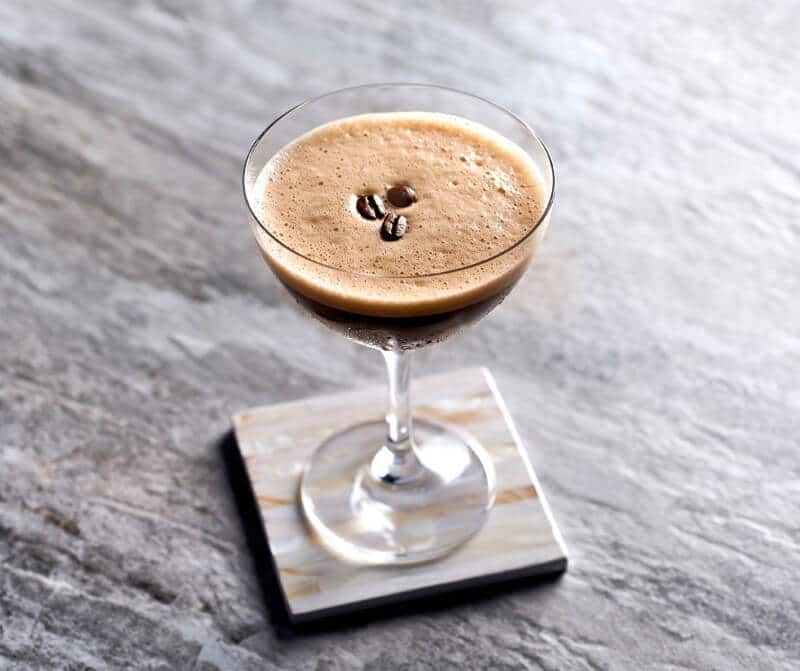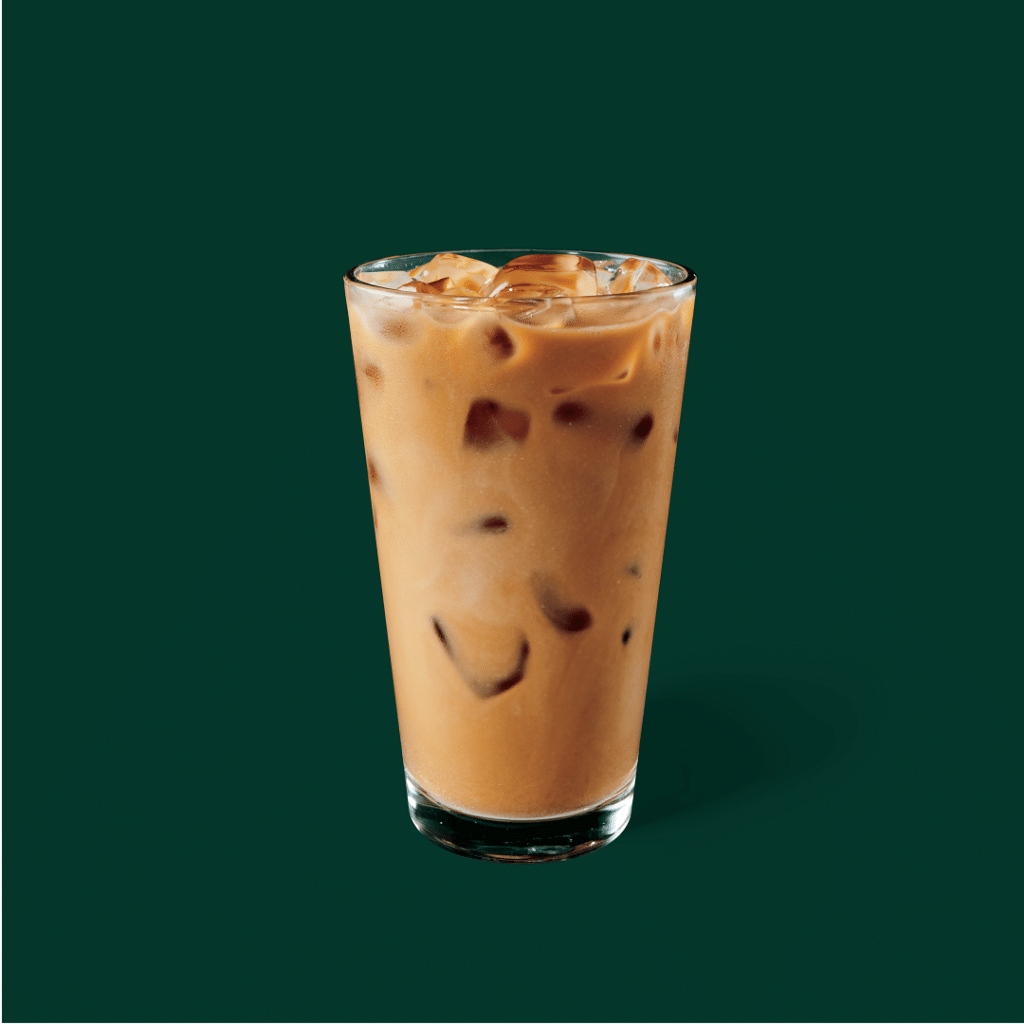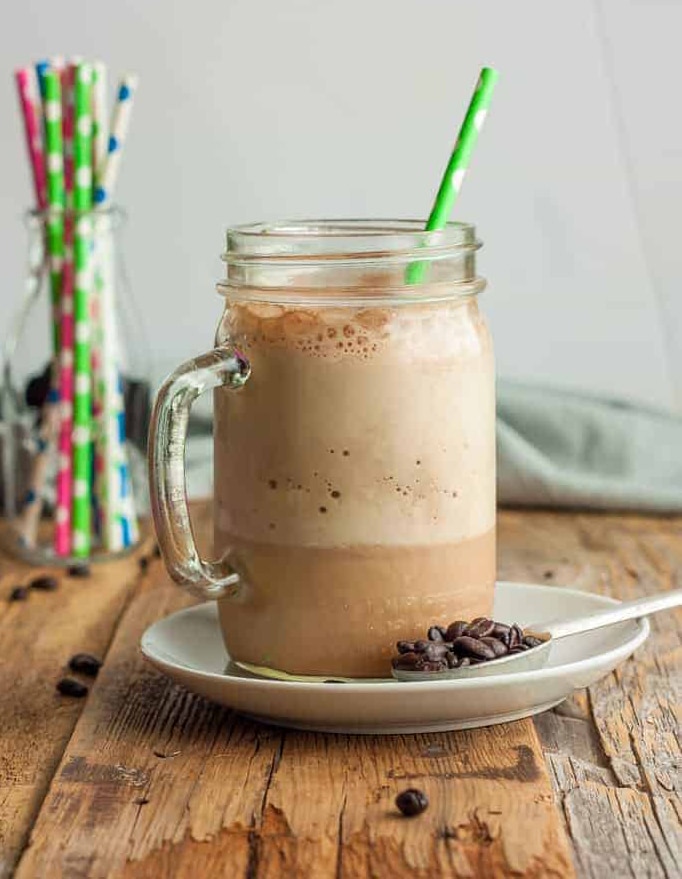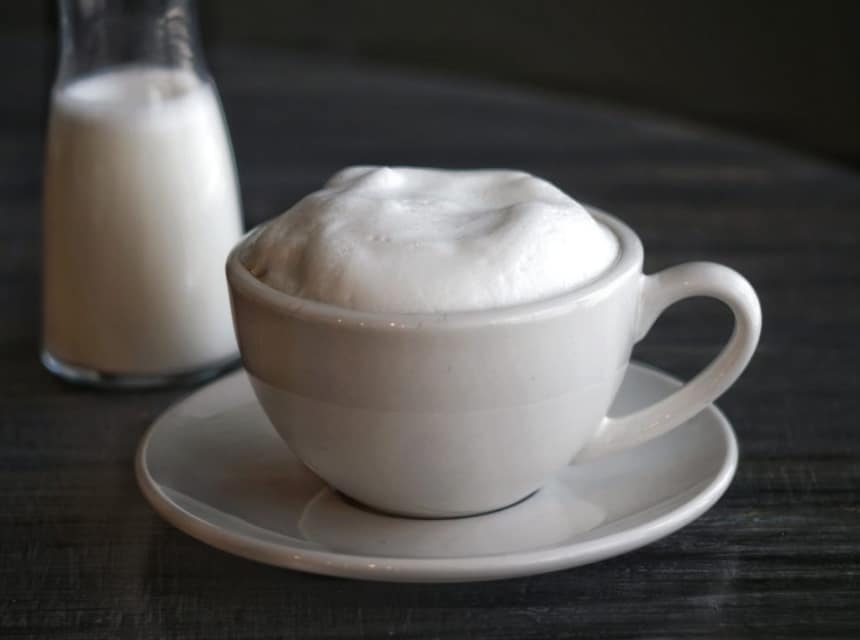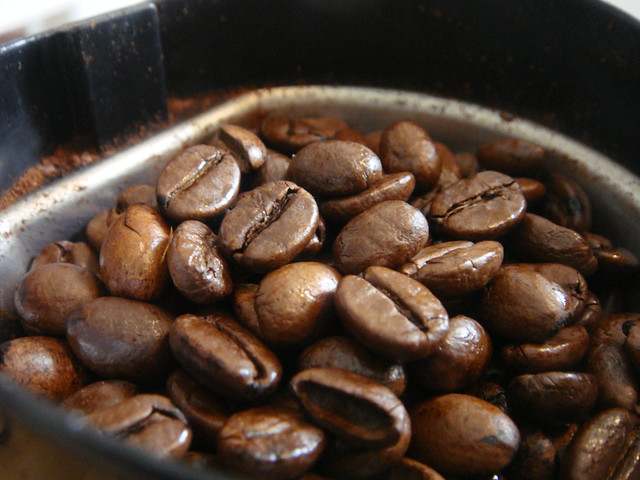

Coffee is the second most traded product around the globe and the second most consumed beverage worldwide with daily global consumption estimated at 2.25 billion cups! The world of coffee is so diverse that we bet you don’t know many of the coffee facts we have included here. Did you know that a coffee pot broke the internet before Kim Kardashian ever thought of it? Or that coffee can prolong your pet’s life so that it can set a Guinness World Record?
We have cherry-picked important facts that have shaped the history, development, and trends for coffee, disputed coffee myths by including authoritative evidence and highlighted some celebrities who share our passion for caffeine. You will also learn about the animals that were so buzzed by the berries that they brought this beverage to the fore and the ones with dung worth deluxe drinks.
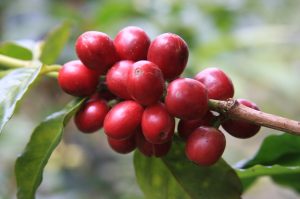
Coffee beans refer to a seed or two seeds that are found in the pit of a red or purple coffee cherry which has a thick and bitter skin, sweet fruit with texture that resembles that of grapes and a slimy protective layer. Those with two seeds have a flat side which is absent in the single-seed berries known as peaberry. Coffee is misconceived as a bean because of its similar appearance to that of typical beans.

According to the International Coffee Association, the annual coffee consumption per Finn is 12 kilograms, making Finland the greatest coffee lover in the world. Although it is not recommended, some of the citizens have been known to drink as many as 30 cups of coffee in a day. This widespread use of light roasted coffee at homes and workplaces is attributed to the cold climate where the temperature can be as low as minus 40 degrees.
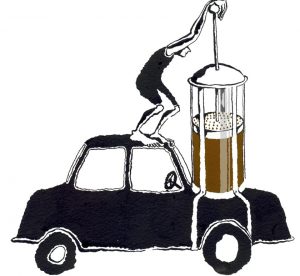
Coffee connoisseurs who consider Cappuccino vital fuel that quickly transforms a foggy mind into a fiery one can now look forward to Car-puccino; a car that is fuelled by coffee. Scientists have successfully turned ground coffee into biodiesel, so one day coffee may be fuelling your car. The process involves soaking the natural oils extracted from coffee grounds in an organic solvent through trans-esterification to convert it to biofuel. The longest journey by a coffee-powered car that is recorded by the Guinness World Records was made by a 1988 Volkswagen Scirocco in March 2010. The car, which was driven for 209 miles, uses 56 espressos per mile to achieve a speed of 60 miles per hour.
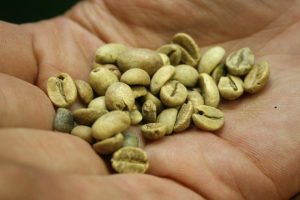
It wasn’t until around 1,000 A.D. that coffee was made into the stimulating beverage we know today, albeit with the beans and the hull. Previously, it was an energy-rich protein bite for ancient tribes in East Africa who made it into a nourishing snack by blending ground berries with animal fat. The Galla tribe in Ethiopia still makes these munchable “energy balls” with macerated coffee cherries and animal fat.

Experts have found that drinking 3 to 4 cups of coffee in a day lowers the risk of mortality from all causes of cardiovascular disease, coronary heart disease, and stroke. The American Heart Association also reports that regular consumption reduces the risk of Type 2 diabetes, Parkinson’s disease, and Alzheimer’s disease while the American Cancer Society notes that newer studies have linked coffee consumption to lowered risk of cancer of the liver, mouth, throat, prostate, and endometrium.
The daily global consumption of coffee is estimated at 2.25 billion cups of coffee. Statistics from the latest research conducted by The National Coffee Association indicate that the average daily intake by American coffee drinkers is approximately 3 cups. The coffee trade association also reports that 63% of American adults drink coffee daily, and the share of gourmet coffee consumed past-day has increased from 51% in 2018 to 61% this year, according to findings by the 2020 National Coffee Data Trends (NCDT).

Coffee with cream cools at 20% slower rate than dark coffee because of three reasons: 1) Dark colors absorb and emit heat faster than lighter colors. 2) Stefan-Boltzmann law says that hotter things emit heat faster, so adding cream lowers your coffee’s temperature and slows down cooling. 3) Cream increases the coffee’s viscosity and subsequently reduces the rate of heat loss through evaporation.

Coffee can be lethal at 70 to 100 cups, depending on your body weight, although such cases are rare. A South Carolina teenager died in 2017 after drinking cafe latte, Mountain Dew and energy drink which triggered arrhythmia. The few deaths that have reportedly been associated with coffee mostly involve caffeine powder or tablets in high doses which cause fast and irregular heartbeat and low blood pressure. This is partly because you would need to drink copious amounts of coffee in quick succession to get close to a lethal dose, and chances are that nausea, vomiting or dizziness would put a stop to that.

Black Ivory Coffee is the costliest and most rare kind in the world. It is produced by elephants at The Golden Triangle Asian Elephant Foundation in northern Thailand. They consume Arabica coffee beans which are later retrieved from their dung by the mahouts. It takes 72 pounds of raw coffee berries to produce 2 pounds of this limited and luxurious coffee, which explains the high price.

This world record is held by Caffé Bene who created a massive iced black Americano of 14,228.1 liters in South Korea on 17 July 2014. The gigantic cup had a height of 10 feet 10 inches and a width of 3 feet 4 inches.

A recent report by Acorns Money Matters indicates that the average American spends more than $20 a week on coffee which translates to roughly $1,092 in a year, with almost half of the American workers admitting to requiring a daily fix before going to work.
A cup of plain black coffee has only 2 calories. On the other hand, a teaspoon of sugar typically contains 16 calories. By avoiding sugar, whipped cream, and high amount of sweeteners, you can enjoy a rich-flavored rejuvenating drink and benefit from the antioxidants contained in several cups of piping hot coffee without piling on calories.
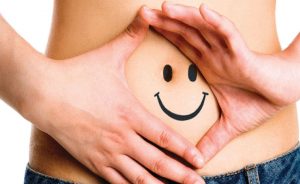
Hot coffee is more acidic than cold-brewed coffee. The chlorogenic acid compound present in coffee triggers secretion of gastric acid to speed up food along the digestive tract and aid in digestion and also activates colon contractions to stimulate bowel movement.
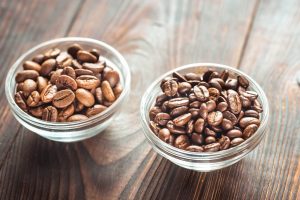
Arabica and Robusta are the two major types of coffee species grown for consumption, with the former dominating more than half of the market. Robusta has higher levels of chlorogenic acid and twice the caffeine of Arabica, lending it a bitter taste that is ideal for instant coffee and espresso, while Arabica has 60% more oils than Robusta and double the amount of sugars to produce a smooth, sweeter flavor that is popular for most coffee drinks.
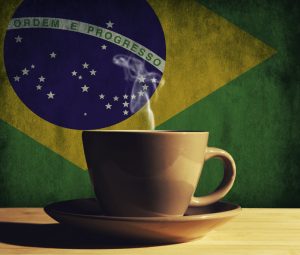
Brazil is the global leader in coffee production, a position it has held since 1840. With more than 10,000 miles of coffee plantations, the country churns out approximately 30% of the total coffee produced in the world.

Espresso is derived from “expresso”, an Italian word which means “pressed out”. The word has its roots in Exprimere in Latin, but the Italian has replaced such words which have an X with an S in their alphabet to make it “Espresso”. It explains the brewing process of pressing water at near boiling point through finely-ground coffee using pressure.
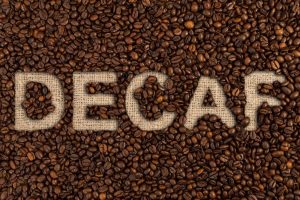
Decaf coffee is not caffeine-free, although it has much less than the 80 to 100 mg of caffeine in a cup of regular coffee or the 30 to 50 mg of caffeine in a cup of green or black tea. The United States Department of Agriculture (USDA) says that a similar cup of decaf coffee generally has 2 mg of caffeine but some decaf brands may have higher amounts of 15 mg. The little caffeine is the reason that decaf coffee is used in the manufacture of soft drinks.
The natural oils in coffee improve the production of collagen for a more youthful skin while the antioxidants in coffee, which protect cells from damage make it effective in exfoliating, smoothening, and firming up the skin to improve the appearance of cellulite and reduce any puffiness. This is why coffee has become a regular component in essential oils, beauty masks, and cellulite treatment.
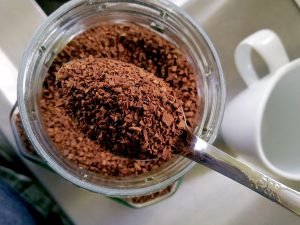
John Dring invented the first version of this convenient coffee solution in England in 1771 and was awarded a patent by the British Government for his “coffee compound”. Instant coffee is mostly available in powder form or capsules, which are dehydrated by freeze-drying or spray-drying to preserve the natural oils, aroma, and flavor for future consumption.

His biographer has stated that Ludwig Van Beethoven was obsessive about the number of beans used to brew his coffee and would literally count the coffee beans himself to confirm they were the 60 he needed for every cup of the one indispensable item in his diet.

If you want a longer lifespan for your furry friend, you may want to borrow a leaf from Jake Perry who has rehomed hundreds of cats. 2 of them have actually broken the Guinness World Records for Oldest Living Cats, and a third of all his pets have lived to a minimum age of 25 years. The secret? Coffee and wine for the felines to accompany their daily meals. Perry’s vet believes the diuretic coffee strengthens a cat’s otherwise weak kidneys.
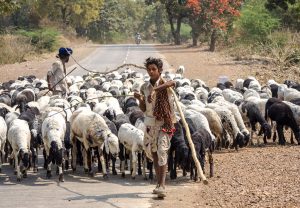
I kid you not. Kaldi, an Ethiopian goat herder, noticed his goats bopping and bleating excitedly after eating the strange red berries, and he then decided to ingest them himself. Once he discovered how invigorating the stimulating berries made him feel, he introduced it to the monks who used it to stay awake for prayers and who later spread the word.

Cappuccino coffee takes its name from the color of the robes worn by the Franciscan order of monks in Italy, also known as Capuchin monks because their robes resemble the color of this coffee blend of espresso and frothed milk.
Before Black Ivory Coffee came into being, cat-like civets were crapping the most expensive coffee in the world, known as Kopi Luwak. Civets eat the coffee cherries, which acquire various flavors through the fermentation process during digestion, before defecating the partly-digested seeds for collection and cleaning by farmers.
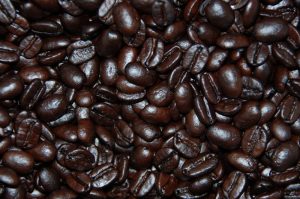
Dark roast weighs less than light roast but has bigger coffee beans because the extended heat expands them. If you compare the two in terms of coffee measurement, light coffee produces more caffeine in your drink if you use a scoop while weighing your coffee results in higher caffeine content from dark roast. Ultimately the level of caffeine will depend on your measurement – scoop or scale – and the species of coffee bean.
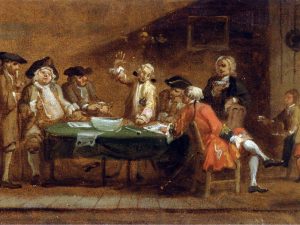
Although the first coffee house in America was opened in Boston in 1689, coffee finally became in demand in 1773 after the British government introduced Acts to collect tax on tea and other exports to America leading to several protesting colonists finally getting rid of the tea shipment and switching from tea to coffee en masse during the Boston Tea Party.
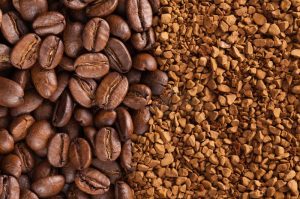
To deal with surplus coffee in Brazil, Nestle freeze-dried coffee in 1938, paving way for the preservation of other perishable types of food such as meat, dairy milk, and vegetables while retaining the nutrients and flavor. They also introduced Nescafe instant coffee in Switzerland.

Cortisol hormone levels rise as soon as you wake up, then fall 3 hours later before peaking after a while, making the time between 9:30 AM and 11:30 AM the ideal time for most people to take coffee to avoid stressing your body with both coffee and cortisol at the same time. Night owls and people who wake up earlier than 5 AM should add 3 hours after they wake up and adjust their coffee drinking accordingly.

Coffee, peanut butter and roses are the top three most recognizable smells in America. This is unsurprising considering we are among the largest coffee consumers in the world, and we don’t seem to mind splitting our salary with Starbucks.
The American College of Obstetricians and Gynecologists recommends keeping your daily coffee consumption at less than 200 mg of caffeine when pregnant or breastfeeding. Caffeine is a stimulant which increases your heart rate and blood pressure and may affect the baby’s sleeping habits after crossing the placenta since the baby may not yet be equipped to process high levels of caffeine. Caffeine has also been linked with low birth weight.

September 29th is the National Coffee Day in America and the best day you can enjoy a Frappuccino freebie or subsidized specialty coffee blends in most restaurants and coffee bars.

After 1475, coffee drinkers would gather to watch performances and share knowledge, news updates, and stimulating conversations while indulging in the caffeinated beverage. This caused the mushrooming coffee shops to be dubbed “Schools for the wise”.
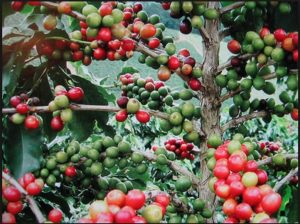
Coffee takes about 3 to 4 years from the period that the seed is planted to the time the cherries are ripe for picking. The maturity period varies according to the specific type of coffee species. It grows best in moist climate under a shade to shield it from the sun and strong wind.
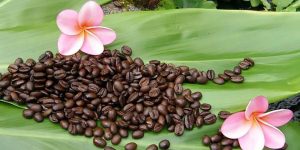
Hawaii and California are the only states in the U.S. that grow coffee due to the black, volcanic soil and the canopies of avocado trees respectively, with the majority of America’s imported coffee coming from South America.
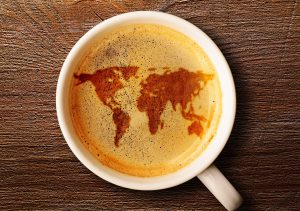
Coffee is second only to tea as the most consumed beverage worldwide, and its usage is bound to increase with recent research finding the vital role it plays in lowering our risks to various illnesses as well as boosting our immune system.
Considering the number of people that congregate in coffee establishments to interact socially and engage in discussions and debate on all kinds of topics and the ongoing revolutions at the time, some governments were initially skeptical of these businesses and actively tried to ban or limit patrons who they feared might plot rebellion and treason.
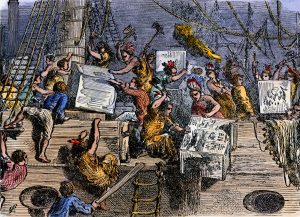
You may say the fears in the coffee fact above were not completely unfounded since The Boston Tea Party, which saw protesters dumping tea chests in the Boston Harbor in 1773 and culminated into the American Revolution was partially planned in a coffee shop in Boston. The protesters were fighting against their exclusion by Britain in collecting tax for the tea they were importing.
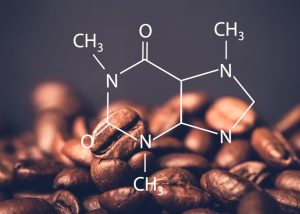
We have already mentioned chlorogenic acid as one of the key compounds found in coffee that aids in digestions and influences coffee’s flavor. Additionally, coffee has more than 1,000 compounds that make it a complex beverage that requires optimal brewing conditions to extract maximum flavor and aroma and preserve its oils from deterioration.

Arabica coffee accounts for three-quarters of the coffee consumed globally. It is considered the most superior quality, and it is popular for a milder and sweeter flavor and less caffeine than Robusta.

Coffee will not only fuel future cars, but is currently fuelling a lot of economies as the world’s second most traded product after petroleum, reinforcing the rising demand for coffee in the market.
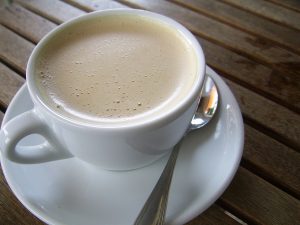
After a French doctor recommended that his patients consume coffee with milk to softens the bitterness and reduce the acidity of coffee, the practice picked up and the French who had been making coffee by placing powdered coffee in a cloth bag and infusing it with boiled water like a teabag discovered café au lait, a drink that they adopted for breakfast and consumed espresso for the rest of the day and a trend they have stuck to this date.
George Constant Louis Washington is credited for inventing mass production on instant coffee, a valuable battlefield boost which became a hit with soldiers labeling it a “cup of George” during World War 1.

Coffee is laden with multiple antioxidants and stimulants which help to combat depression, increase motivation and improve your energy levels. This study carried out a survey of 346,913 individuals including 8,146 people with depression, and found coffee to have a protective effect against depression. Harvard Researchers also found that women who took larger doses of caffeinated coffee had a lower risk of depression. They also report that the risk of suicide decreased progressively for up to 7 cups per day, but it increased if consumption exceeded 7 cups of coffee.

Coffee is an addictive beverage which also boasts of a 1,200 compounds, including abundant antioxidants which protect our cells from free radicals and mitigates the effects of oxidation; phenolic acid, an antioxidant that is present in colored vegetables and fruits; the aroma-generating melanoidin with anti-inflammatory and anti-bacterial properties; quinine used in treating bacteria; and of course caffeine which heals headaches, reduces depression and lowers the risk of a number of cancers, and also enhance cognition and alertness.

19th century French writer and playwright, Honoré de Balzac, reportedly used to binge on 50 cups of coffee in a day and even documented his addiction in “The Pleasure and Pains of Coffee” where he suggests drinking two cups of coffee at a time if you have produced the finest grind with the least water possible to continue working for several more days. He also noted that coffee sets the blood in motion and stimulates the muscles, accelerates the digestive processes, chases away sleep, and gives us the capacity to engage a little longer in the exercise of our intellects.
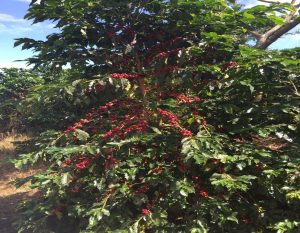
Coffee can grow to a height of more than 30 feet and live for up to 100 years in an optimal environment. Both Arabica and Robusta require 60 inches of rainfall annually but they differ in their ideal temperatures, with the former thriving in 59 to 75 degrees Fahrenheit and the latter doing well in temperature ranging from 75 to 85 degrees Fahrenheit. While Arabica needs high maintenance and produces relatively few coffee berries per harvest, Robusta is easier to grow because it can withstand warmer weather, is resistant to parasites and diseases, and yields more coffee.
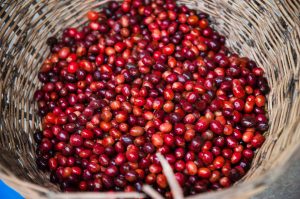
Although cherries that are mature for picking turn from green to red or yellow depending on the variety of coffee, red is the most common colour for majority of the ripe coffee cherries grown today. The red coffee berry indicates that the coffee bean is fully developed and ready for harvest.
Coffee improves the effectiveness of medicines such as acetaminophen and ibuprofen to relieve headaches; antioxidants that neutralize free radicals to reduce oxidative effects on cells boost our immune system, enemas which prime the colon for colonoscopy and endoscopy and slowing down the progression of Hepatitis C, among others. It has also been linked to lower risk of several types of diseases which prevents these diseases from developing as a side effect of medication you could be taking for other illnesses.

The first webcam was installed in 1991 by Dr. Quentin Stafford-Fraser and Dr. Paul Jardetzky at the University of Cambridge so employees could keep tabs of a coffee pot from their desks. A camera was connected to networked computers in the Computer laboratory to provide live viewing of the shared carafe and conveniently monitor the coffee supply. Two years later, Daniel Gordon and Martyn Johnson connected that camera to the internet where the carafe could now be viewed by millions of people online, and it became a defining aspect of the early web.

With age comes experience. This explains why Italian baristas who average 45 years of age and train for 2 to 3 years for the job have perfected and, we dare say, championed several of the coffee specialty blends we enjoy today, particularly their enviable espresso. Italians take their espresso seriously, literally and figuratively, and there is even official legislation in place to regulate its pricing.
We hope the above coffee facts have given you some food for thought and shed more insight into the diverse elements in the world of coffee, such as the intriguing history, the host of health benefits, and its inspiration for other products and technologies.

